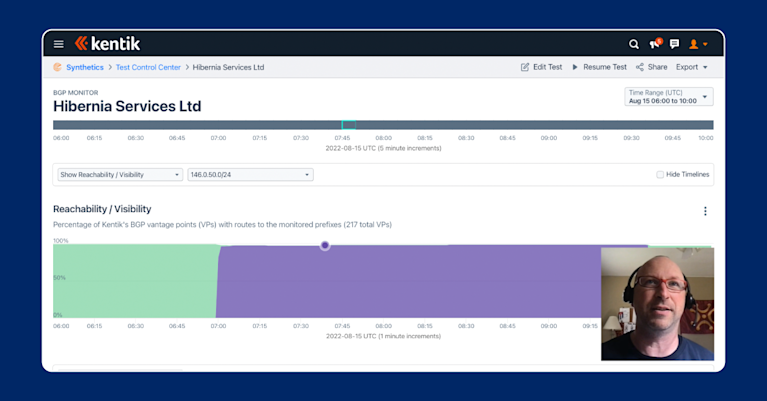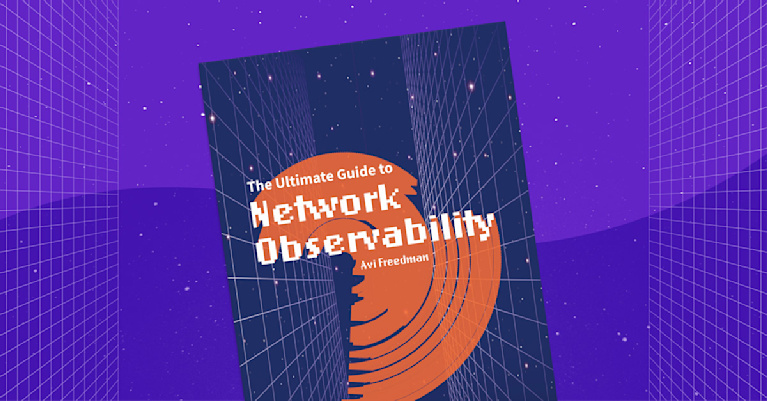Kentik delivers valuable network insights to fast-growing Bangladeshi communications provider SComm
Overview
Summit Communications Ltd. (SComm) is a leading provider of data communications services in Bangladesh. To monitor and analyze complex network traffic patterns and deliver on the promise of always-on, reliable service for its customers, SComm uses the Kentik Network Observability Platform.
Situation
SComm serves mobile phone operators, internet service providers and call centers. Its services are in high demand in Bangladesh, as the nation is one of the fastest-growing economies in the world, with fast-rising use of advanced communications. Specifically, in this country of 166 million people, there are more than 170 million mobile phone accounts, and over 110 million internet users.
SComm offers a variety of services, including a nationwide telecommunications transmission network (NTTN), long-haul transmission lines with its nationwide, extensive optical fiber cable network, one of the country’s largest International Internet Gateway (IIG) offerings, and IPLC and IP transit, among other services. SComm also has extensive point-of-presence (PoP) coverage throughout the country.
Many of SComm’s services involve interconnection with carriers outside Bangladesh. For example, the IP transit service includes peering and caching arrangements with major content delivery networks (CDNs), such as Google, Facebook, Amazon, Netflix and Akamai, resulting in more favorable pricing and quality of service for SComm customers.
“Our goal is to provide our customers with reliable, cost-effective, and flexible options for the bandwidth and connectivity they need,” says Md. Shahidullah Kaisar, Senior Manager of Gateway Operations for SComm at its headquarters in Dhaka. “To meet these objectives, we must closely monitor our many network connections across all dimensions — performance, availability, security and cost.”
Solution
SComm’s gateway operations team had employed several approaches over the years in an attempt to satisfy its need for network observability. Kaisar points to several necessary requirements in a network observability solution, including: capacity planning; cost control and allocation; peering negotiations; DDoS detection; and network usage by individual customer, geography, carrier, application, and type of service.
“We were experiencing rapid growth in all dimensions — the number of customers, the volume of network traffic, and the variety of services used. We reached a point where we were not getting the detailed information and insights we needed to have a clear picture of our network operations,” Kaisar recalls.
The team initially explored NetFlow analysis tools to capture data on the volume of network traffic as well as sources and destinations. Later, they explored the option of application, country, and AS-based traffic analysis. These approaches, however, had their limitations.
“We were having trouble categorizing network connectivity in different geographies,” Kaisar says. “This is important to us, as we need detailed information to make effective peering arrangements, as well as ensure that we deliver a high quality of service to customers in all parts of the country.”
Then the SComm team heard about Kentik. “We learned that many of the leading CDNs and Tier-1 carriers were using Kentik,” Kaisar says. “So we wanted to try it out in our network.” After initial evaluation, the SComm team selected the Kentik Network Observability Platform as its primary network observability solution.
Kaisar says Kentik satisfies three primary needs: detailed reporting on network traffic, both real-time and historic; support for network engineering and capacity planning; and DDoS detection.
Results
The Kentik platform is integral to the SComm team’s network monitoring needs. “The highly detailed information we get from Kentik supports our most important functions,” Kaisar says. “The reports we receive help us make many critical decisions.”
Specifically, SComm is using Kentik for:
- Traffic engineering (both prefix- and AS-based)
- Network planning: capacity planning, performance optimization and network expansion
- DDoS detection: accurately identifying attack traffic and sources
- Analysis of growth in network traffic volumes (e.g., by application, CDN or geography)
- Traffic pattern analysis (by country, ASN or prefix)
Upholding SLAs with help from Kentik
“We are dedicated to delivering highly reliable services, either through formal service-level agreements (SLAs) or our pledge to meet a carrier-grade service availability,” Kaisar says. “Kentik is a very valuable element in meeting those commitments.”
Capacity planning from Kentik
With the dramatic growth SComm is experiencing, capacity planning is vital, and Kentik is essential to this effort as well. “We use Kentik as part of a continuous effort to maintain our ability to deliver the best quality service to our customers. Kentik delivers the foundation of any good planning effort: complete, accurate information on exactly what’s happening on all our networks and external connections.”
Easy-to-understand reporting from Kentik
Kaisar says the reports from Kentik are highly detailed yet presented in a way that network managers can quickly and easily view the metrics most important to them, as well as note any warnings of potential problems.
Key takeaways
Kaisar notes the widespread impact Kentik has on SComm: “For any organization that faces challenges in monitoring their network operations and ensuring quality of service, Kentik will provide them with valuable information and insights.”
Reflecting on his experience with the Kentik Network Observability Platform, Kaisar has concluded that “rapidly growing organizations should use Kentik to optimize their entire network.”

Category:
- Telecommunications
Challenge:
- Needed to maintain optimal customer experience amid hypergrowth
- Needed to understand network connectivity in different geographies
Solution:
- Network observability from Kentik
Results:
- Upholds SLAs with highly reliable services
- Delivers best quality service to our customers
- Easy-to-understand analysis and reporting to find and fix issues fast
Platform
Solutions
- Reduce Cloud Spend
- Migrate To and From Any Cloud
- Improve Cloud Performance
- Optimize Enterprise WAN
- Network Performance Monitoring
- Deliver Exceptional Digital Experiences
- Detect and Mitigate DDoS
- Harden Network Policy Management
- Investigate Security Incidents
- Visualize All Cloud and Network Traffic
- Troubleshoot Any Network
- Understand Internet Performance
- Optimize Data Center Networks
- Consolidate Legacy Tools
- Optimize Peering and Transit
- Plan Network Capacity
- Reduce Network Spend
- Grow Subscriber Revenue


